Onion Omega2 Dash
An open-source touchscreen & Wi-Fi-connected Linux dev board
Funding ended on Jan 31, 2020 at 03:59 PM PST.
Funding ended on Jan 31, 2020 at 03:59 PM PST.
The Omega2 Dash is a Wi-Fi-enabled Linux computer with a built-in touchscreen. It is a stand-alone, all-in-one solution that provides a touch-based visual UI that can be internet-connected, connected to other devices, or both. It can display the commandline, run programs that create a touch-based UI, and display images (png, jpeg).
The Omega2 Dash is a self-contained device with Linux OS preloaded on its on-board flash storage. Just add power over Micro USB and it will boot in less than a minute. Omega2 Dash works right out of the box, so it can be dropped easily into a project. Plus, no additional storage is required.
We’re building Omega2 Dash within the larger Onion ecosystem. The popular Omega2S module is the computing and communications unit of Omega2 Dash - it runs Linux OS, manages the Wi-Fi radio, and controls the touchscreen. This has advantages for production too, because we can re-use circuit designs that we’ve mass-produced in the past, with manufacturers that we know and trust.
Omega2 Dash has a variety of interface options allowing it to easily connect to other devices: I²C, SPI, UART, GPIOs, USB 2.0, microSD card, and Ethernet through expansion header. You can use it to create touch-based control panels for other devices or systems. This enables use cases where the Omega2 Dash provides a simple user interface for a different device, e.g., it can act as a Human-Machine Interface (HMI) for a host device or larger machine.
Internet connectivity through Wi-Fi or wired networking allows for UIs that use online services to pull data from the cloud or create events to trigger online activities. Onion devices have been expertly designed for Wi-Fi networking, and Omega2 Dash is no exception. The Wi-Fi interface can simultaneously host its own Wi-Fi access point and connect to existing Wi-Fi networks.
With a 3.2" TFT touchscreen display, the Omega2 Dash brings touchscreen capability to the established Omega2 Linux computer platform. Users will be able to create interactive graphical user interface (GUI) applications for their connected, edge-computing projects. Users can easily interact with the display device through the Linux framebuffer. This also greatly reduces the time and complexity of creating a GUI IoT application.
You can display the commandline directly on Omega2 Dash, run GUIs, and display images in png and jpeg formats. The 320x240 resolution screen supports 16-bit RGB565 color and 12-bit resistive touch input.
We designed Omega2 Dash to be compatible with the LittleV Graphics Library. LittlevGL (lvgl) is the ideal programming method for Dash - it’s a free and open-source graphics library that provides everything you need to create an embedded GUI with easy-to-use graphical elements and visual effects. It also has a conveniently low memory footprint.
We created a template for Omega2 Dash programs using the LittleVGL. It’s super easy to use, and we even added some demo code for you to start with:
/*Create a "Hello world!" label*/
lv_obj_t * label = lv_label_create(lv_scr_act(), NULL);
lv_label_set_text(label, "Hello world!");
lv_obj_align(label, NULL, LV_ALIGN_IN_TOP_MID, 0, 0);
/*Create a button*/
lv_obj_t * btnLabel;
lv_obj_t * btn1 = lv_btn_create(lv_scr_act(), NULL);
lv_obj_set_event_cb(btn1, event_handler);
lv_obj_align(btn1, NULL, LV_ALIGN_CENTER, 0, 0);
btnLabel = lv_label_create(btn1, NULL);
lv_label_set_text(btnLabel, "Press Me");
printf("starting loop\n");
while(1) {
lv_tick_inc(5);
lv_task_handler();
usleep(5000);
}
Check out the demo of a touch-enabled GUI made with LittleV Graphics Library below:
The on-board USB-to-serial chip provides reliable, always-on access to the Omega’s command-line, which is invaluable for configuration and debugging device operation. Alternatively, you can securely connect a command-line terminal through the local network using SSH.
Use the microSD card slot on the bottom of the device to add gigabytes and gigabytes of additional storage to your Omega2 Dash. The ability to add storage space is essential for storing any assets used or created by the device — images, log files, etc. — or, occasionally, when project requirements change leading to the application taking up more space than originally planned.
| A. 30-pin Expansion Header | E. Chip antenna |
| B. MicroSD card slot | F. On/off switch |
| C. Reset button | G. Micro USB port |
| D. Omega2S+ IoT module | H. USB 2.0 host port |
| I. 3.2" TFT touchscreen | K. Amber System Status LED |
| J. Holes for easy mounting | L. Blue Wi-Fi Status LED |
Back in 2015, we saw the need for an IoT-specific computer that was connected, small, and power-efficient, but also had the horsepower to take advantage of the flexibility and ease of use offered by a Linux operating system. This led to the introduction of the Omega IoT computer and then the second generation Omega2. The Omega2 has now expanded into a family of products including Omega2S surface-mount modules and purpose built devices like the Omega2 Pro and Omega2 LTE (that were launched right here on Crowd Supply).
For some time now, our users have been posting on the Onion community forum about their projects, experiments, and deployments using the Omega2 platform to drive small TFT displays. These users generally created two-way user interfaces to easily communicate with other machines/devices, services on the internet, or both. After noticing this trend, we got into contact with these users to learn what is important to them in a touchscreen device and set out to build it. The Omega2 Dash is the result.
OnionOS provides an intuitive user interface through your browser. Write code, run commands, and use apps to interact with your Omega2 Dash, no installation required.
The Terminal and Code Editor apps make OnionOS a development environment that works on any computer. Use it for initial development or as an easily-accessible IDE for projects that have already been deployed.
With the OnionOS App Manager, you can install more OnionOS apps and do even more from your browser.
With extensive I/O, it is easy to interface the Omega2 Dash with other devices and components depending on the needs of your application.
On top of that, Omega2 Dash is compatible with the existing ecosystem of Omega2 expansions. This ecosystem of plug-and-play additions are a modular way of adding specific functionality to your device.
Above expansions: Ethernet, ADC, NFC/RFID
Above expansions: Servo (PWM), Proto
| Expansion | Description |
|---|---|
| Ethernet | Wired 10/100 network connectivity via a standard Ethernet cable |
| ADC | Four-channel, 16-bit analog to digital converter |
| NFC/RFID | Standard 13.56 MHz RFID and NFC reader and writer |
| Servo (PWM) | Generate up to 16 different, free-running, pulse-width-modulated signals |
| Proto | A blank slate of 185 pads on which to solder your own circuit |
| Omega2 Dash | Adafruit PyPortal | Raspberry Pi 3B+ with PiTFT 2.8" | Raspberry Pi 4 (2GB) & PiTFT Plus 3.5" | |
|---|---|---|---|---|
| Processor | 580 MHz MIPS | ARM Cortex-M4F microcontroller | 1.4 GHz Cortex-A52 | 1.5 GHz Cortex-A72 |
| Memory | 128 MB | 256 KB | 1 GB | 2 GB |
| Storage | 32 MB flash + microSD slot | 8 MB | None - microSD | None - microSD |
| Wi-Fi | 2.4 GHz b/g/n access point & client | 2.4 GHz b/g/n soft access point & client through coprocessor | 2.4 GHz b/g/n client | 2.4 GHz b/g/n client |
| Operating System | OpenWrt Linux | n/a | Raspbian Linux | Raspbian Linux |
| Programming Languages | All modern programming languages | CircuitPython, Arduino | All modern programming languages | All modern programming languages |
| Screen Size | 3.2" | 3.2" | 2.8" | 3.5" |
| Resolution | 320 x 240 | 320 x 240 | 320 x 240 | 480 x 320 |
| Colour | 16-bit | 16-bit | 16-bit | 16-bit |
| Display Interface | Linux Framebuffer | Direct data lines | Linux Framebuffer or HDMI mirror | Linux Framebuffer or HDMI mirror |
| Form-factor | All-in-one | All-in-one | Board + HAT | Board + HAT |
| Dimensions | 82 mm x 70 mm x 18 mm | 88 mm x 64 mm x 11 mm | 85 mm x 56 mm x 28mm | 91mm x 56mm x 28mm |
| USB Serial | Yes | Yes | No | No |
| Power Requirements | 5 V 0.5 A | 5 V 0.5 A | 5 V 2.5 A | 5.1 V 3 A |
| Open Source | Yes | Yes | No | No |
| Path to Production | Yes | Yes | No | No |
| Total Cost (USD) | $69 (includes US shipping) | $54.95 + shipping | $90.40 | $110.40 |
This project builds on the continued success of our community, which is years in the making and thousands strong. The community has contributed an enormous amount of examples, use cases, demos, questions, answers, and tutorials. We’ll add additional resources for Omega2 Dash as they become available.
Omega2 Dash will be manufactured by our contract manufacturer (CM) in Shenzhen, China. We’ve been working with this CM since 2016 and have successfully produced tens of thousands of boards. Boards are always tested extensively for quality assurance.
All Omega2 Dash devices will be shipped to our customers using Crowd Supply’s fulfillment services. Once manufacturing is complete, we’ll make a bulk shipment to Crowd Supply and from there, the packages will be shipped out to our individual backers. For more information, you can refer to this useful guide to ordering, paying, and shipping.
Backers can confirm and update their order details and more in their Crowd Supply account.
All of the inherent risks of any electronics manufacturing endeavor apply to the Omega2 Dash — component availability may delay production, PCB production yield could be low, or assembly yield could be low, to name a few potential issues.
Having said that, we’ve been designing and manufacturing IoT hardware since 2015 and we’re confident in our ability to deliver a quality product in the expected timeline. We’ve also taken steps to minimize risk for Omega2 Dash:
We believe that honesty is the best policy and will keep our backers informed every step of the way. If we do encounter any hiccups, speed bumps, or road blocks, we will be open and transparent about the issues and how they affect our delivery timelines. We have done this before, and we will not stop until we have delivered everything!
Produced by Onion in Boston, MA.
Sold and shipped by Crowd Supply.
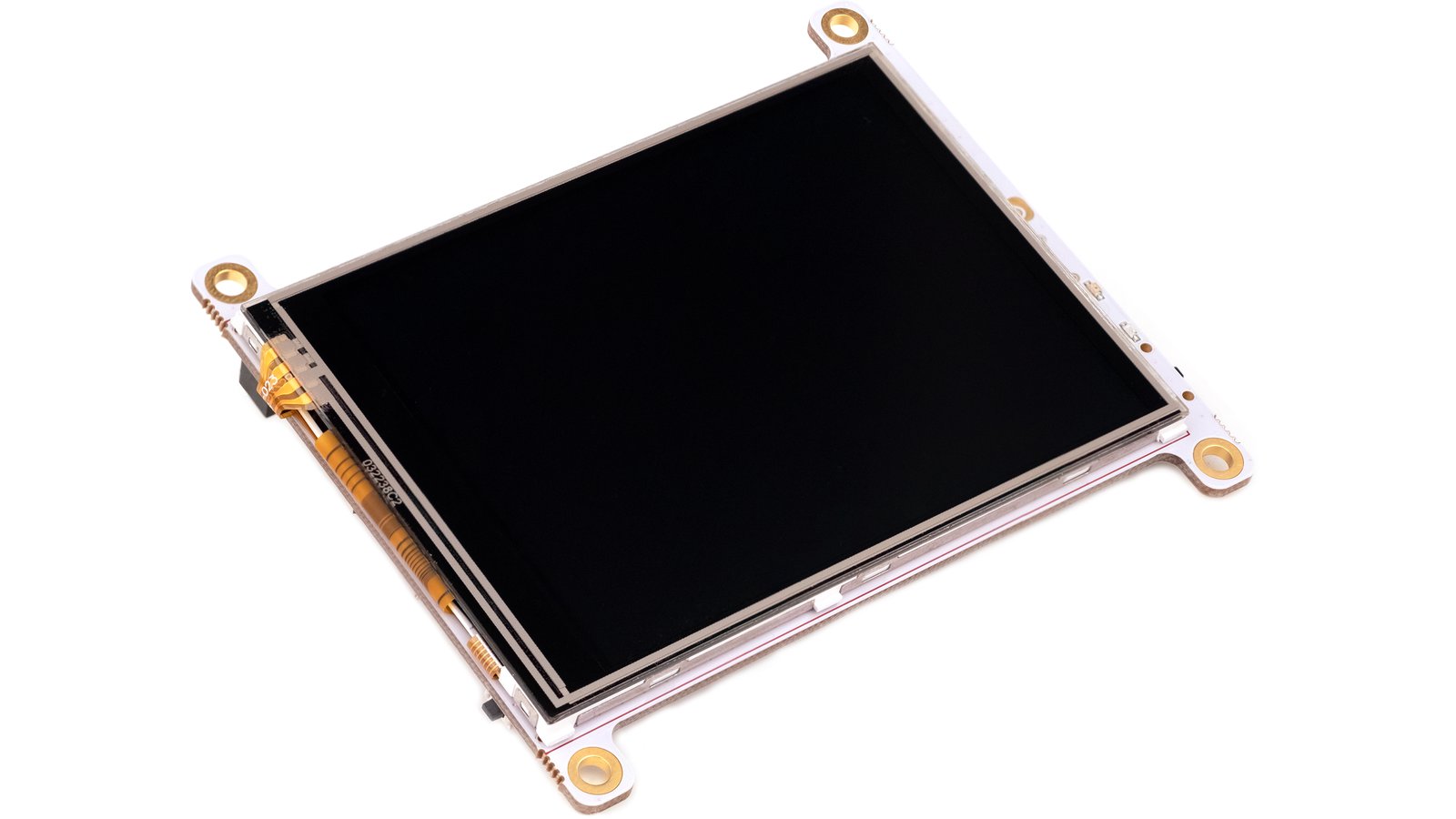
An Omega2 Dash IoT computer. Perfect for making internet-connected control panels and user interfaces.
Want to buy this item? Check the current project page for the latest information.
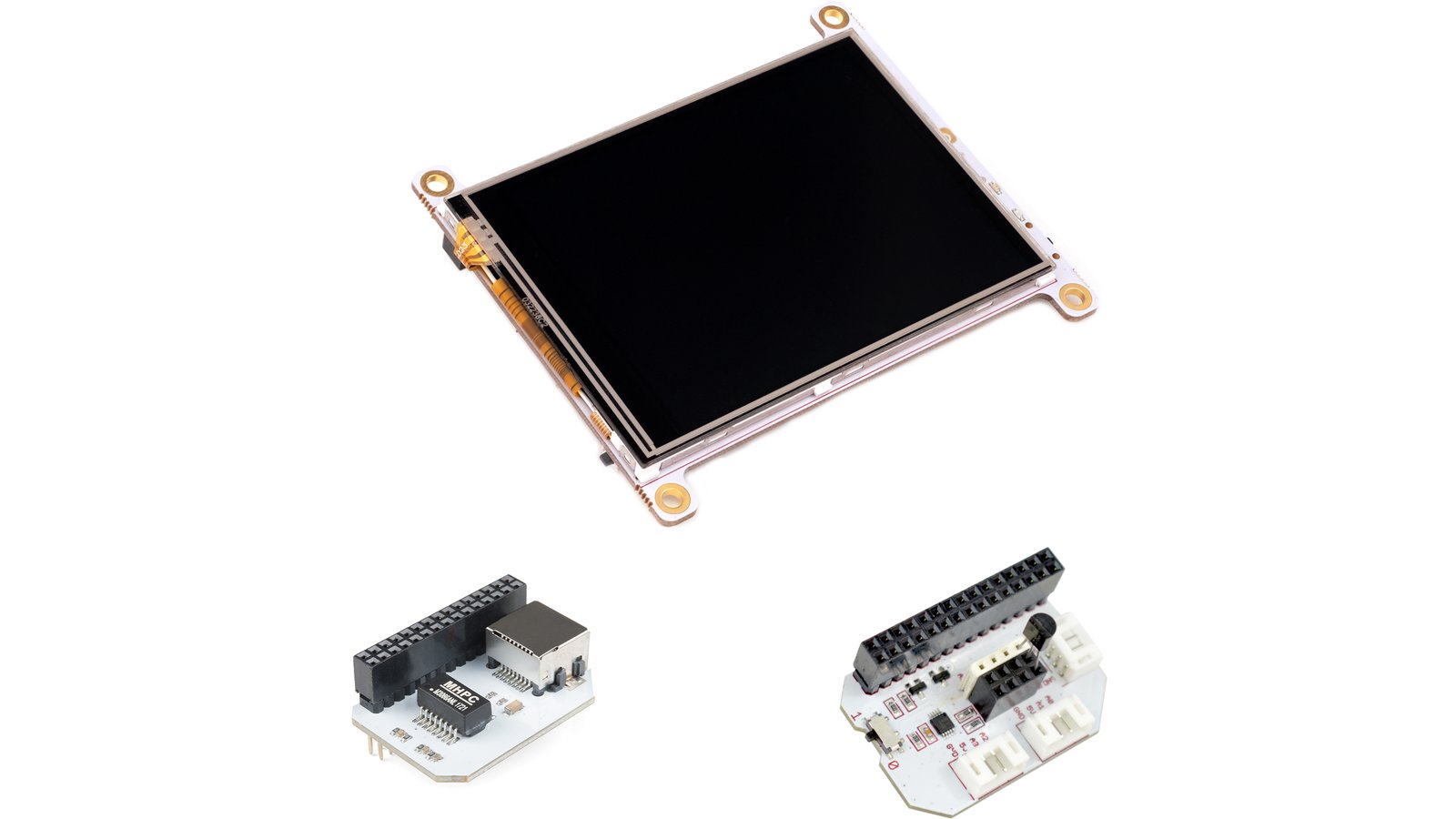
An Omega2 Dash and the Ethernet and ADC Expansions. Build projects that use wireless or wired networking and can communicate with all sorts of devices, digital or analog.
Want to buy this item? Check the current project page for the latest information.
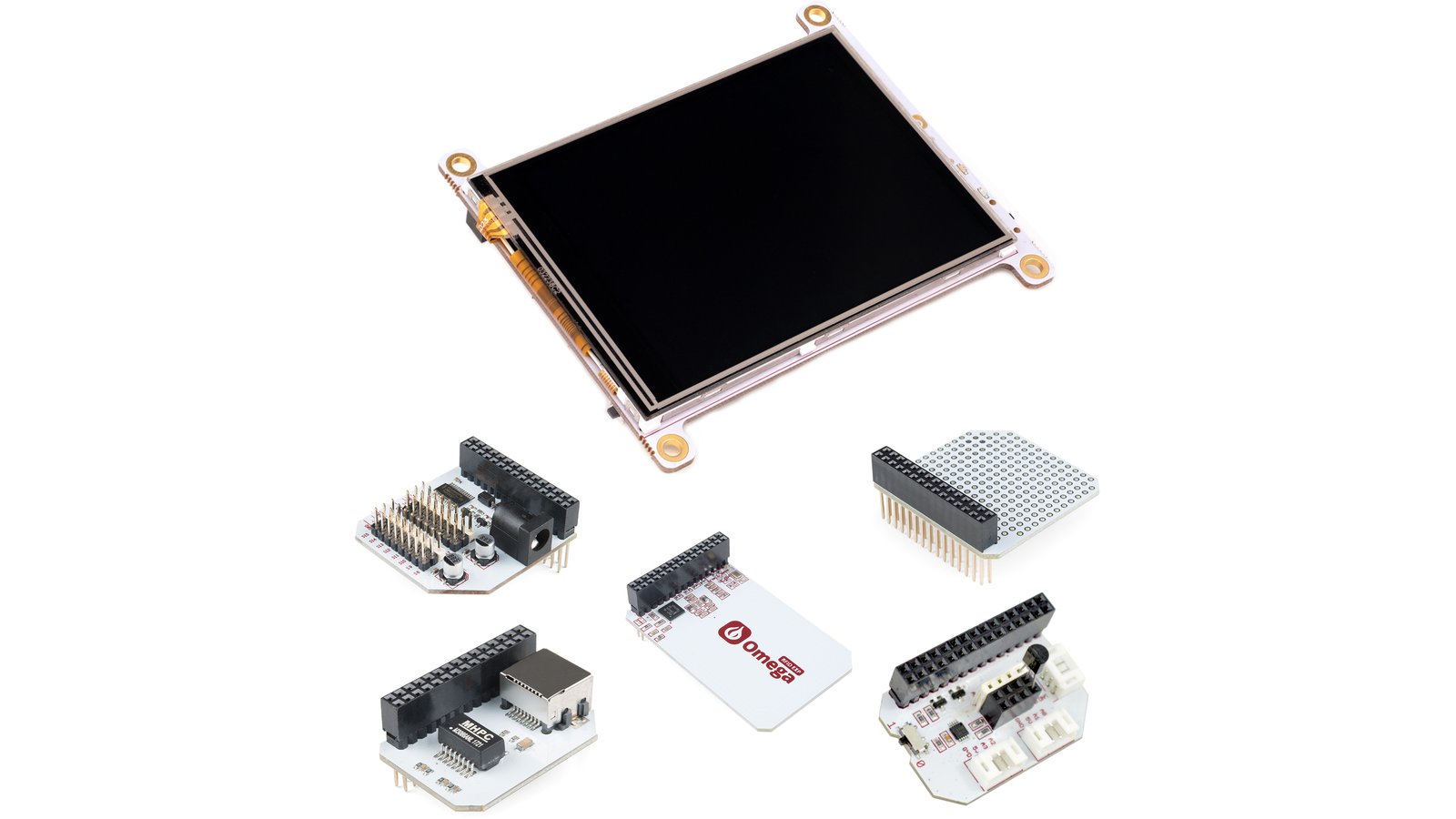
An Omega2 Dash and a whole set of Expansions: NFC/RFID Expansion, ADC Expansion, Servo (PWM) Expansion, Ethernet Expansion, Proto Expansion.
Want to buy this item? Check the current project page for the latest information.

Four Omega2 Dash units! Automate your whole home or build a bunch of projects!
Want to buy this item? Check the current project page for the latest information.
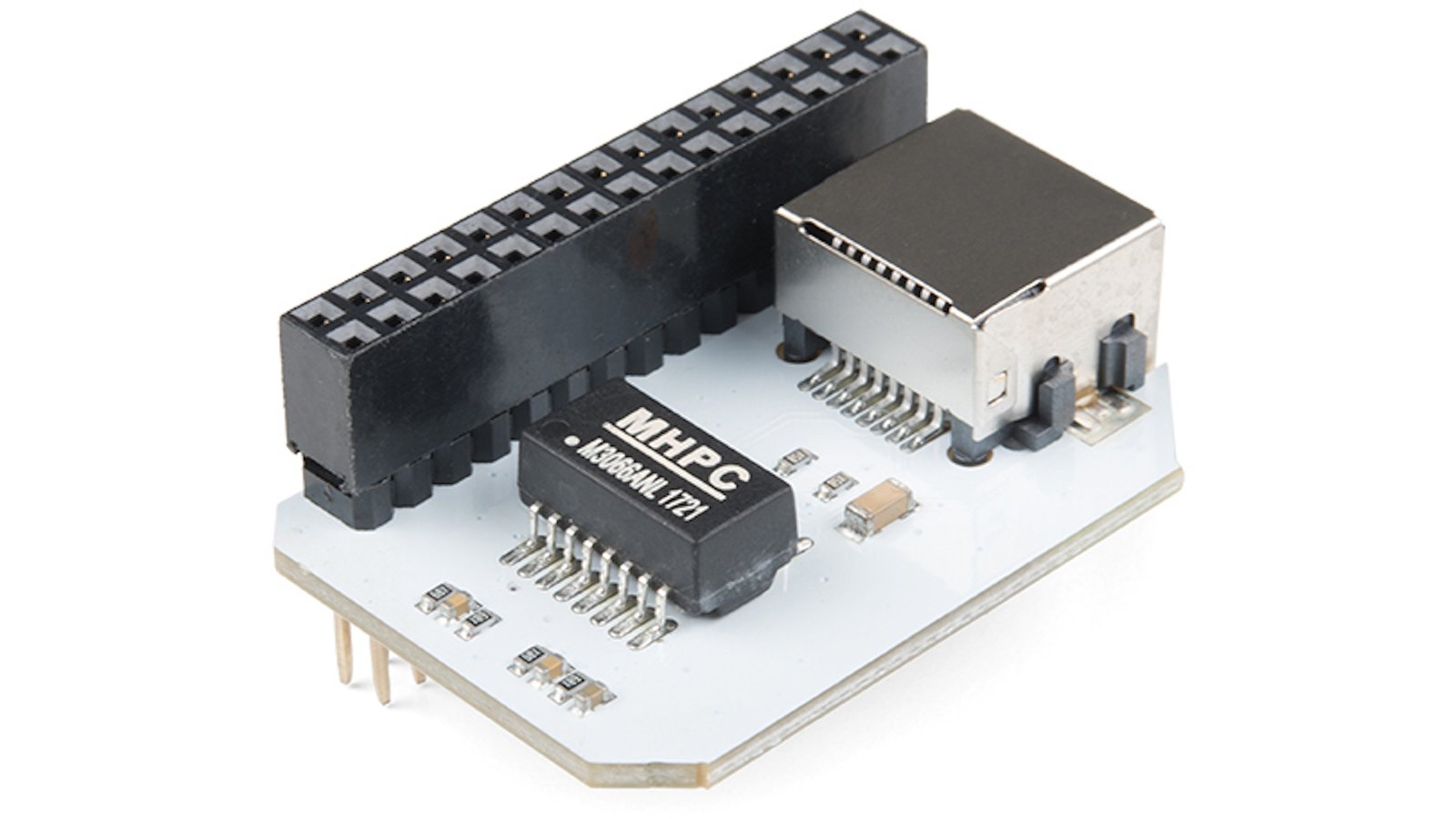
From the Onion Omega2 Pro project.
An Ethernet Expansion board for your Omega2 Dash
The Ethernet Expansion adds an Ethernet port to your Omega with a maximum connection speed of 100Mbps. While the Omega is all about wireless connectivity, a reliable wired network connection can be a great addition to a project, and the Ethernet Expansion is a great tool for quickly reflashing your Omega’s firmware.
Want to buy this item? Check the current project page for the latest information.
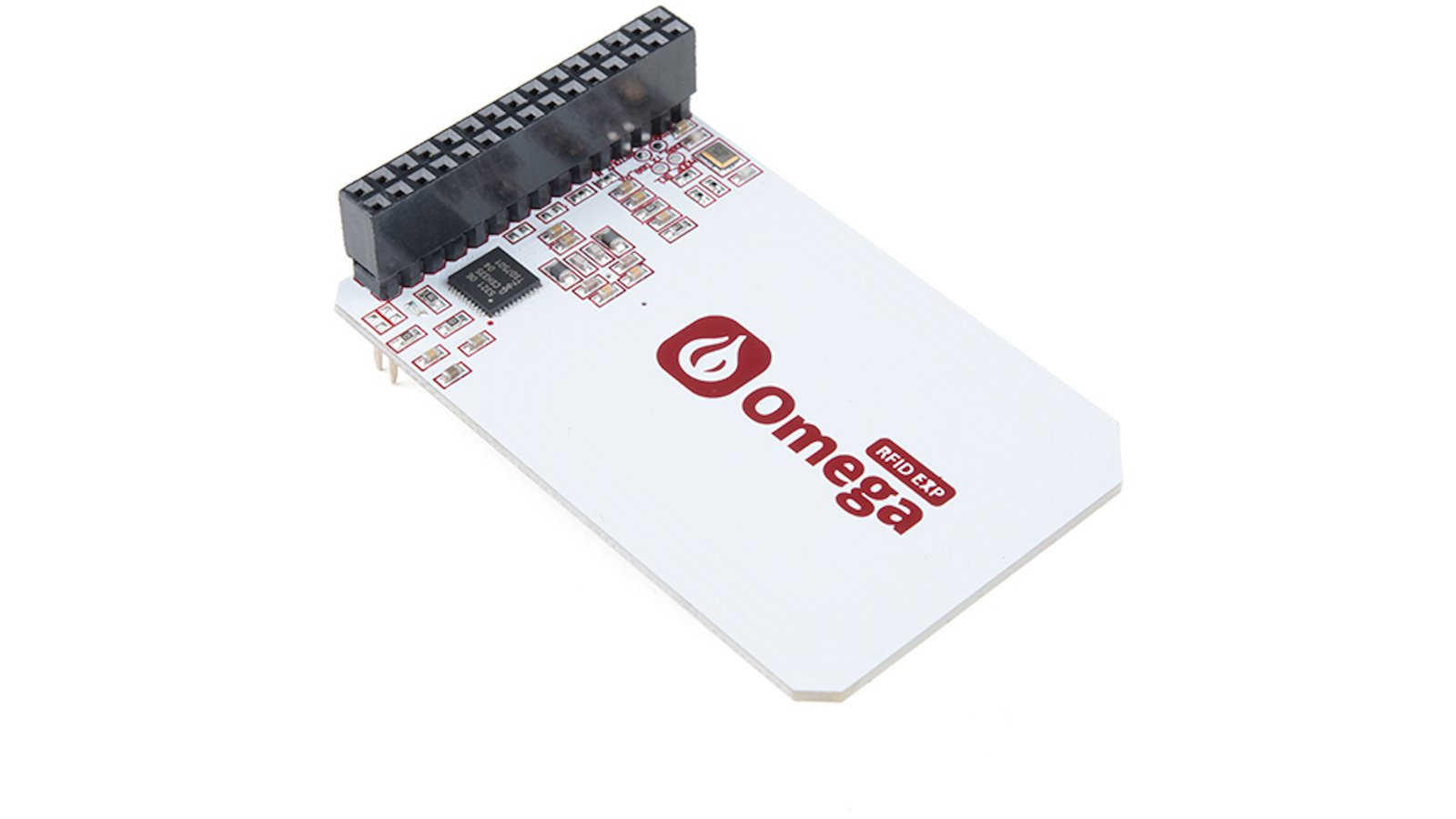
From the Onion Omega2 Pro project.
An NFC/RFID Expansion board for your Omega2 Dash
Bring contact-less RFID and NFC communication to your Omega2. It supports reading and writing with several NFC and RFID protocols at 13.56 MHz. Comes bundled with two programmable Mifare Ultralight tags.
Want to buy this item? Check the current project page for the latest information.
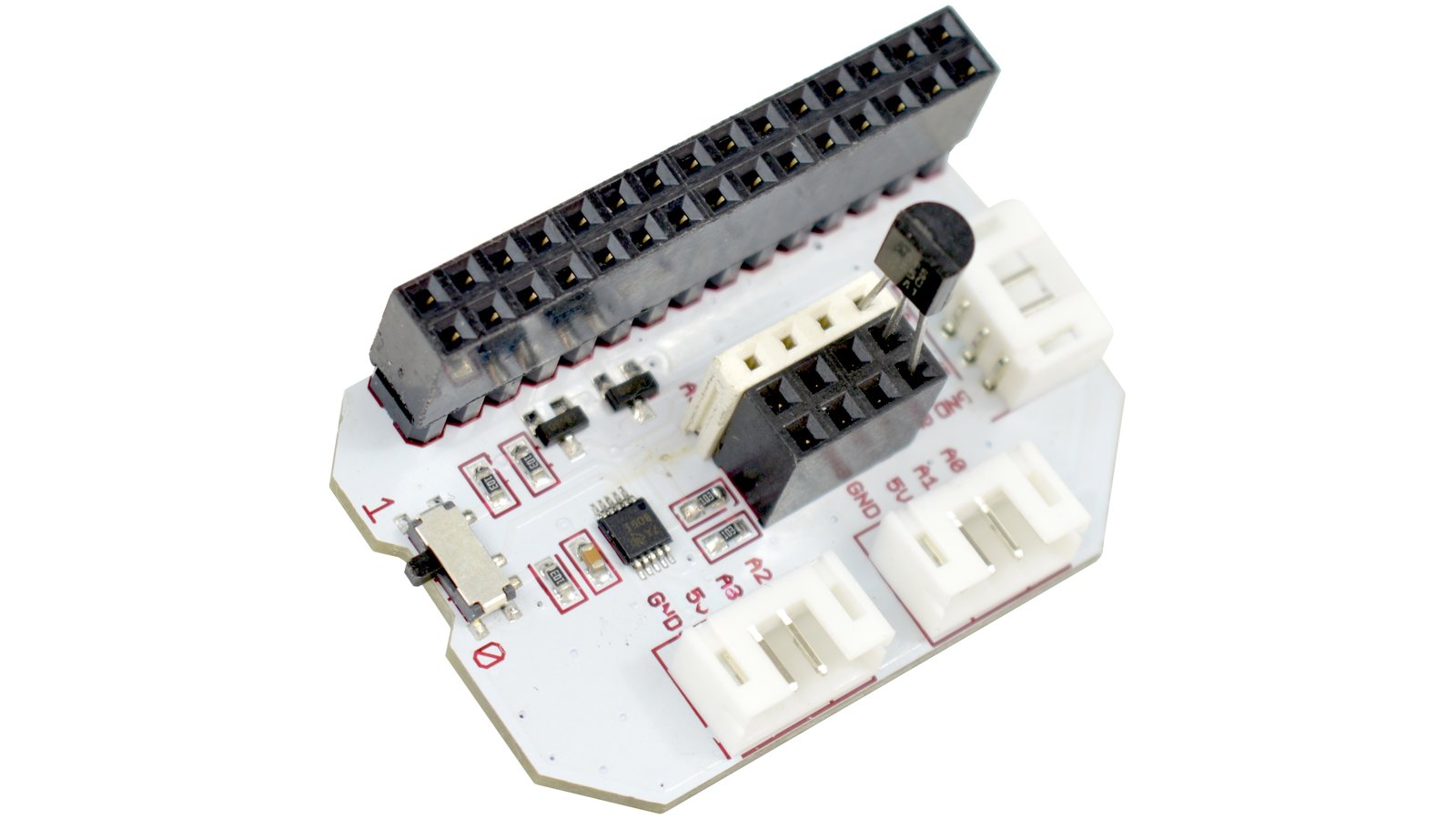
From the Onion Omega2 Pro project.
An ADC Expansion board for your Omega2 Dash
Omega2 can now read all types of analog voltages and sensors with the help of this ADC Expansion. Read and interpret up to 4 analog voltage or sensor inputs, each with 16 bits of precision.
Want to buy this item? Check the current project page for the latest information.
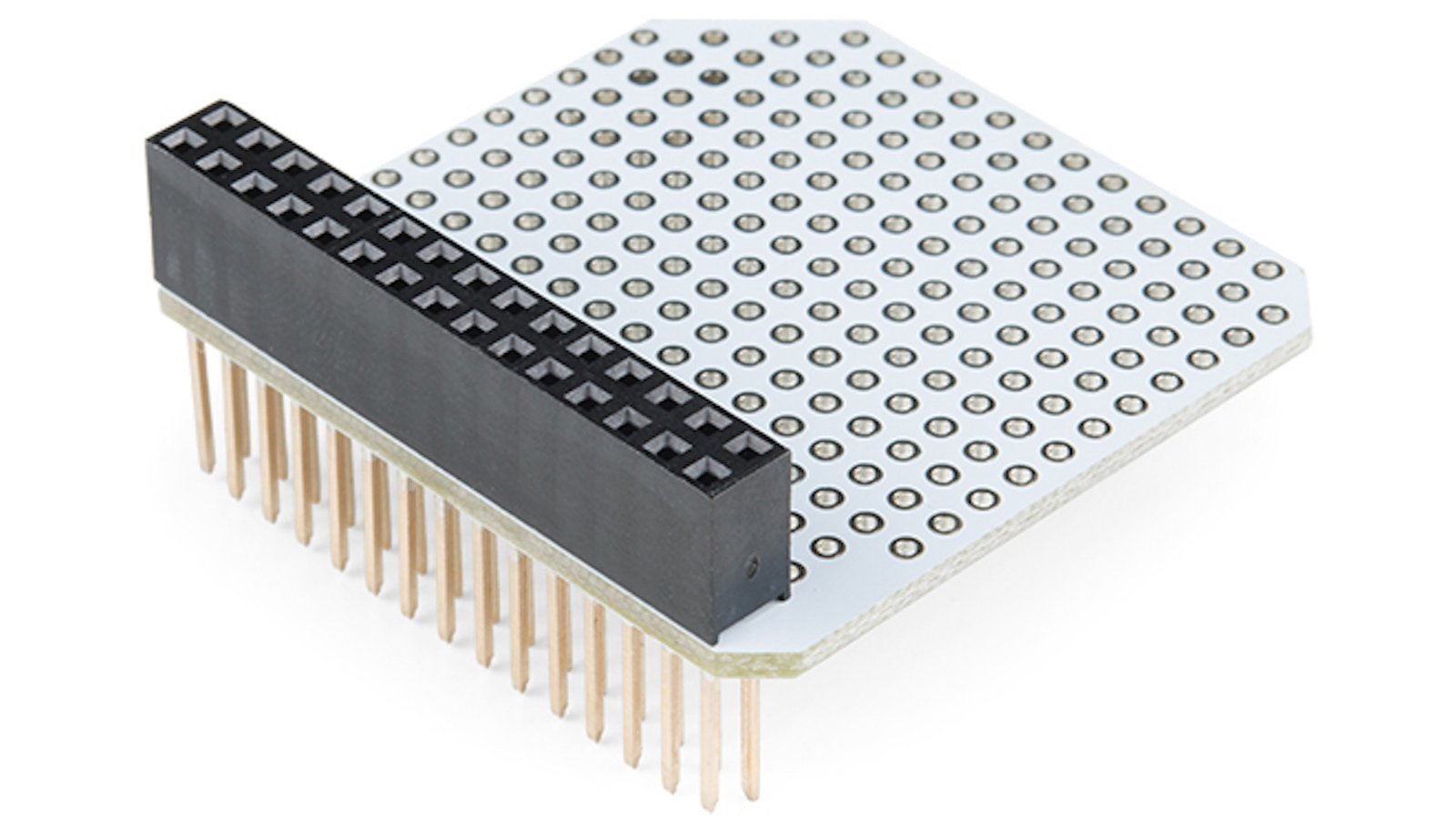
From the Onion Omega2 Pro project.
A Proto Expansion board for your Omega2 Dash
The Proto Expansion for the Onion Omega allows you to create your very own expansion that interfaces with your Omega. It provides a small soldering area and 30-pin header that plugs into the Expansion Dock. With it you will have full control over what kind of project you design for your Omega.
Want to buy this item? Check the current project page for the latest information.
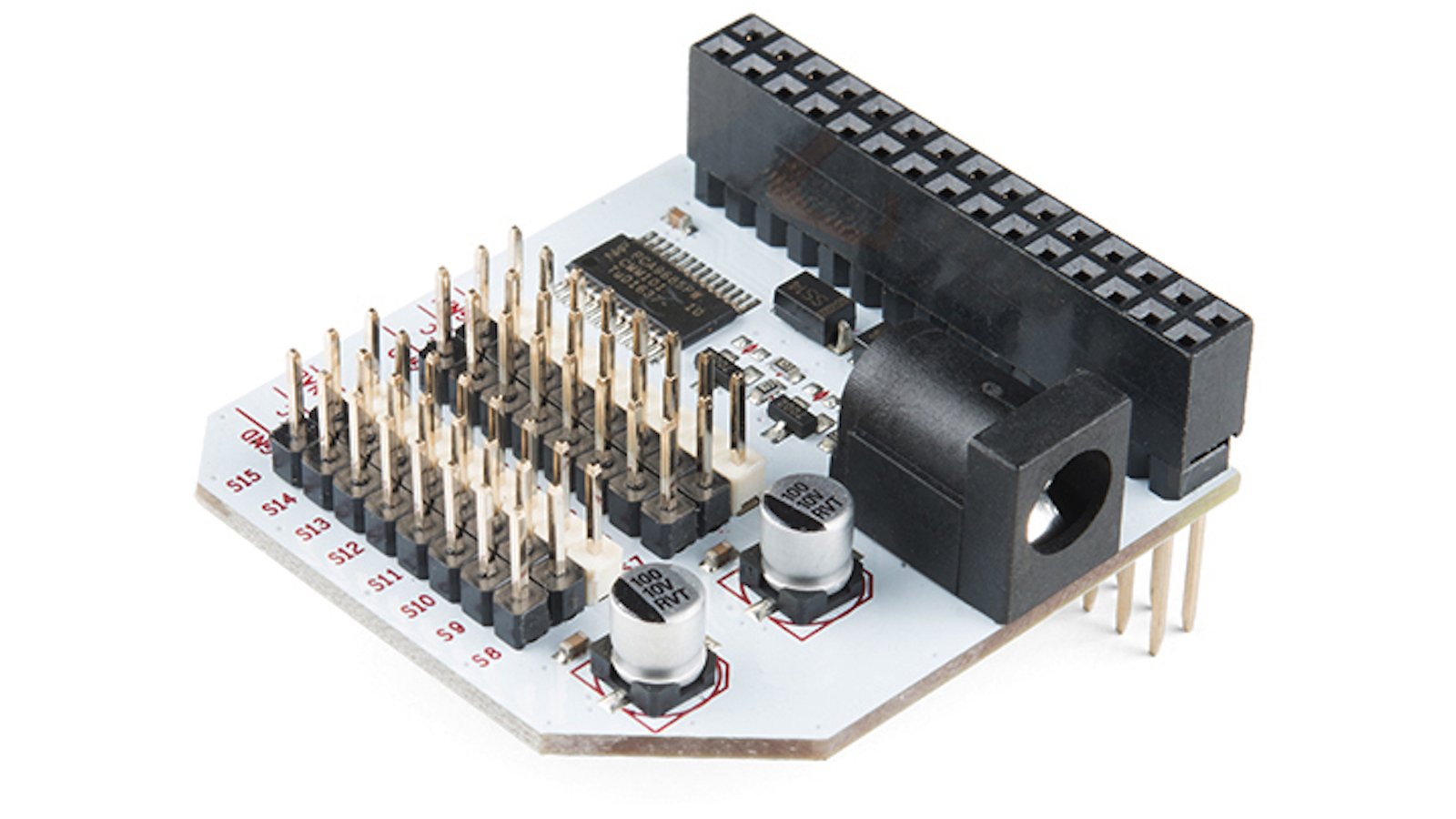
From the Onion Omega2 Pro project.
A Servo Expansion board for your Omega2 Dash
The Servo Expansion adds 16 PWM (Pulse Width Modulation) outputs to your Omega. Connect standard servos directly to the Expansion since each channel has its own 3-pin connectors, making it that much easier to get started with your project! This Expansion is great in any application that requires servos, like a robotics project or anything with moving parts. Given that PWM is so useful, you can also use this Expansion to precisely control LEDs or drive a DC motor using an H-bridge. The Servo Expansion is often also called the PWM Expansion.
Want to buy this item? Check the current project page for the latest information.

· onion.io · OnionIoT · OnionIoT
Onion is a team of technology enthusiasts, creators, and strivers, looking to make amazing products and even better user experiences. Onion has been in business since 2014, graduating from the TechStars Startup Accelerator in Boston that year. In 2015, we introduced the world to the Onion Omega IoT computer.